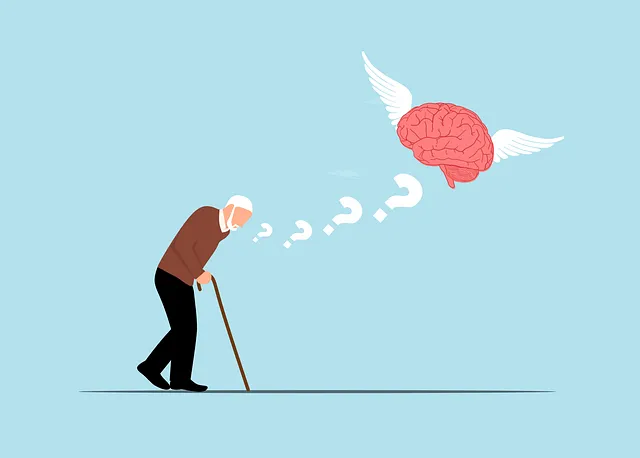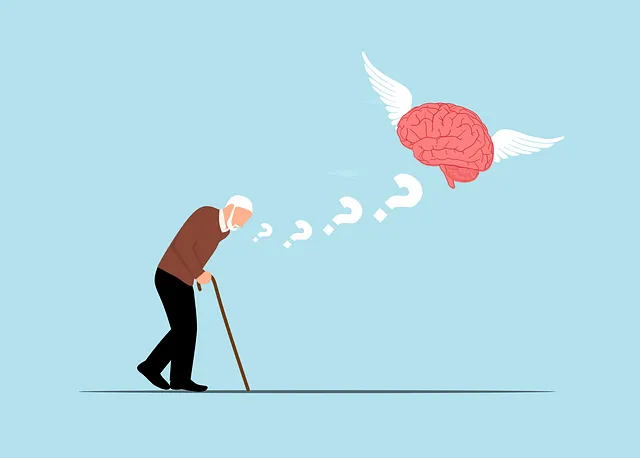The Kaiser Permanente Mental Health Access Center Golden prioritizes cultural competency as a key driver of equitable, effective healthcare for diverse patient populations. Through comprehensive training programs integrating self-awareness exercises and adaptive practices, the center equips staff to navigate unconscious biases, foster inclusive communication, and deliver tailored mental health services that respect varied cultural identities and traditions. This proactive approach enhances patient outcomes, reduces disparities in mental health care access, and sets a standard for culturally sensitive healthcare delivery, as demonstrated by successful program evaluations and positive participant feedback.
Cultural competency training is an essential aspect of modern healthcare, addressing the critical need for providers to understand and respect diverse patient backgrounds. This article explores strategies to enhance cultural sensitivity within healthcare systems, drawing insights from innovative programs like the Kaiser Permanente Mental Health Access Center. We examine how targeted training can reduce mental health disparities, focusing on Golden’s Healthcare Provider Training initiatives as a case study. By implementing effective competency programs, healthcare organizations can foster inclusive care and improve patient outcomes.
- Understanding Cultural Competency in Healthcare: A Necessity in Modern Medicine
- The Kaiser Permanente Mental Health Access Center: A Model for Cultural Sensitivity
- Addressing Mental Health Disparities through Targeted Training Programs
- Strategies for Effective Cultural Competency Training in Healthcare Settings
- Measuring Success: Evaluating the Impact of Cultural Competency Initiatives at Golden's Healthcare Provider Training
Understanding Cultural Competency in Healthcare: A Necessity in Modern Medicine

In today’s diverse and interconnected world, cultural competency within healthcare has become an indispensable aspect of modern medicine. Understanding and respecting cultural differences is no longer a nice-to-have, but a necessity to ensure equitable access to quality care for all patients, including those seeking services from institutions like Kaiser Permanente Mental Health Access Center Golden. This approach recognizes that people’s health beliefs, practices, and behaviors are deeply rooted in their cultural identities, shaping their experiences and interactions with healthcare systems.
Cultural competency involves developing self-awareness exercises and fostering an environment where providers can adapt their practices to meet the unique needs of diverse patient populations. By integrating this into training programs, such as those offered by Kaiser Permanente, healthcare professionals can improve communication, build stronger relationships with patients, and enhance overall mental health outcomes. For instance, encouraging the development of a self-care routine can be culturally enhanced through exploring traditional healing practices alongside evidence-based methods, boosting confidence in managing one’s well-being while acknowledging the richness of diverse self-awareness exercises.
The Kaiser Permanente Mental Health Access Center: A Model for Cultural Sensitivity

The Kaiser Permanente Mental Health Access Center in Golden stands as a shining example of how healthcare organizations can prioritize cultural sensitivity and improve patient care. This center offers a comprehensive range of mental health services tailored to meet the diverse needs of various communities. By embracing a model that puts cultural competency at its core, Kaiser Permanente ensures that every individual receives respectful, accessible, and culturally responsive care.
The Golden Mental Health Access Center’s approach involves training healthcare providers in cultural sensitivity, promoting positive thinking, and fostering self-care routines for better mental health. They recognize that burnout prevention is a critical aspect of maintaining high-quality care, especially in diverse communities where unique challenges exist. This proactive strategy not only enhances patient outcomes but also empowers healthcare workers to build stronger connections with patients from all backgrounds, creating an inclusive environment that improves overall well-being.
Addressing Mental Health Disparities through Targeted Training Programs

Addressing mental health disparities is a critical aspect of healthcare equity, and Kaiser Permanente Mental Health Access Center Golden plays a pivotal role in this initiative through its targeted training programs. These programs are designed to equip healthcare providers with essential tools to better serve diverse patient populations, focusing on improving access to mental health care for underrepresented communities. By implementing tailored instruction, the center aims to bridge gaps that often lead to unequal treatment and outcomes.
One of their key strategies involves enhancing communication skills through workshops that teach effective listening, empathetic engagement, and culturally sensitive questioning techniques. Additionally, the Mental Wellness Podcast Series Production offers a creative avenue to explore diverse mental health topics, reaching a broader audience with evidence-based information. These efforts not only promote better patient-provider interactions but also foster an environment where individuals feel more comfortable seeking help for their mental wellness, ultimately reducing disparities in care.
Strategies for Effective Cultural Competency Training in Healthcare Settings

Cultural competency training is a vital component of healthcare delivery, ensuring providers can offer quality care that respects and understands diverse cultural backgrounds. For organizations like Kaiser Permanente Mental Health Access Center Golden, implementing comprehensive training programs is key to fostering an inclusive environment. One effective strategy involves interactive workshops where participants engage in role-playing scenarios, enabling them to practice culturally sensitive communication. These sessions should cover topics such as unconscious biases, ethical considerations, and the impact of cultural factors on mental health.
Incorporating community outreach programs can significantly enhance training. By inviting local cultural experts and community members to share their experiences, healthcare providers gain insights into specific communities’ unique needs, challenges, and strengths. Additionally, integrating evidence-based practices like Mindfulness Meditation and Depression Prevention initiatives ensures that training is not only culturally sensitive but also clinically relevant. Such approaches empower healthcare staff to connect with patients on a deeper level, ultimately improving patient outcomes and satisfaction.
Measuring Success: Evaluating the Impact of Cultural Competency Initiatives at Golden's Healthcare Provider Training

Measuring success is a vital aspect of evaluating the impact and effectiveness of cultural competency initiatives, such as those undertaken by Kaiser Permanente’s Mental Health Access Center in Golden. By implementing comprehensive training programs, the center aims to equip healthcare providers with the skills needed to deliver culturally sensitive care. One way to gauge progress is through participant feedback and self-assessment tools that capture changes in attitudes and behaviors post-training. These assessments often include Self-Awareness Exercises designed to enhance provider understanding of their own cultural biases and privileges.
Furthermore, tracking improvements in patient outcomes can offer valuable insights. For example, the center might monitor rates of depression prevention initiatives among diverse patient populations. By comparing statistics before and after the training programs, including Compassion Cultivation Practices aimed at fostering empathy, it becomes possible to demonstrate the tangible benefits of cultural competency efforts. Such evaluations ensure that the initiatives remain focused on addressing genuine needs within the community served by Golden’s healthcare providers.
Cultural competency training is a vital component of modern healthcare, as evidenced by initiatives like the Kaiser Permanente Mental Health Access Center. By implementing targeted training programs, healthcare providers can address mental health disparities and create more inclusive environments. The success of these efforts, as demonstrated by Golden’s Healthcare Provider Training, highlights the importance of evaluating and measuring cultural competency initiatives to ensure their positive impact on patient care and outcomes.






